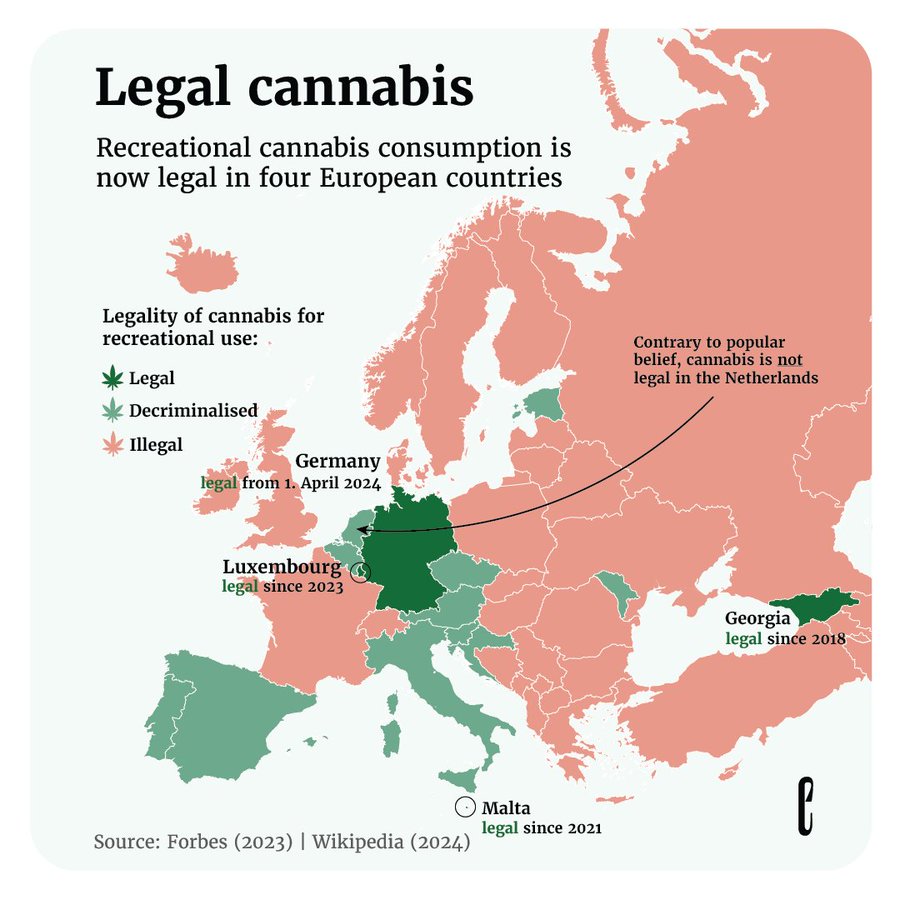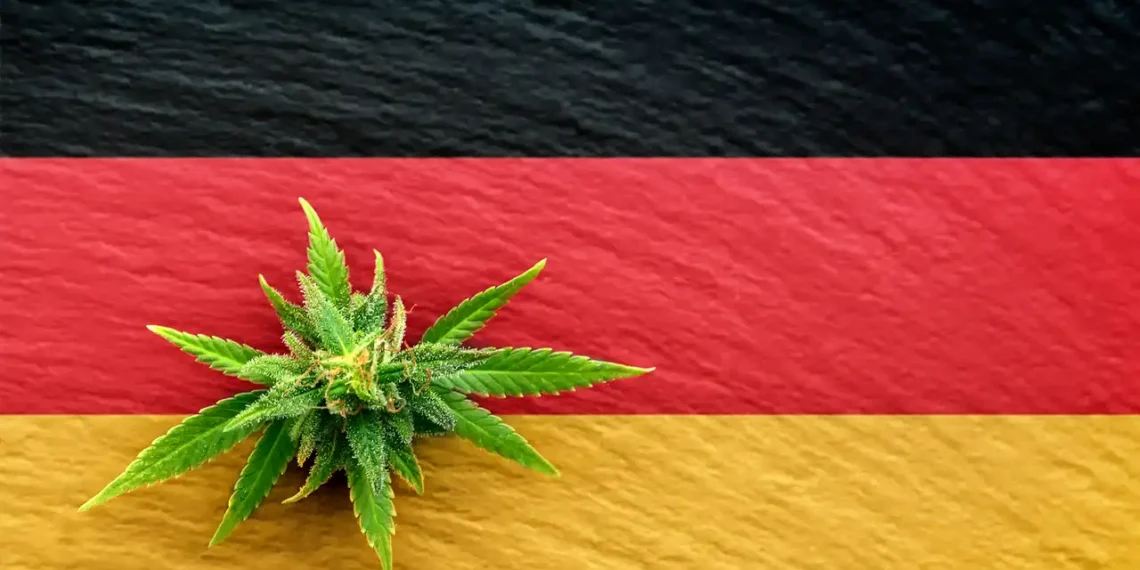Germany made headlines on Monday, April 1, by becoming the largest EU country to legalize recreational cannabis, as per LeMonde. This move, however, has sparked controversy, facing objections from opposition politicians and medical associations.
The new law permits adults over 18 to possess up to 25 grams of dried cannabis and grow up to three marijuana plants at home. These regulations position Germany alongside Malta and Luxembourg, both of which legalized recreational cannabis in recent years.
The law’s implementation was celebrated in Berlin, where hundreds gathered at the Brandenburg Gate, indulging in joints as a symbol of newfound freedom. Yet, this is just the first step in Germany’s cannabis reform journey.
Thousands flocked to Berlin's Brandenburg Gate for massive celebrations as cannabis legalization took effect in Germany. pic.twitter.com/K1QmYTm2Of
— RT (@RT_com) April 1, 2024
Starting July 1, citizens will have access to weed through “cannabis clubs,” each allowed up to 500 members. These clubs can distribute up to 50 grams of cannabis per person monthly. However, until then, consumers are advised not to disclose their cannabis sources during street checks.
Cannabis Legalisation Concerns German Youth
Despite its progressive stance, Germany faces concerns about increased cannabis use among youth. Health experts warn of adverse effects on the central nervous system, particularly for adolescents. Health Minister Karl Lauterbach acknowledges the dangers, emphasizing the need for awareness campaigns and support programs.

The law’s enforcement also raises challenges for law enforcement, who fear conflicts with citizens amid uncertainties. Moreover, retroactive amnesty for cannabis-related offenses poses administrative burdens, affecting over 200,000 cases.
While conservative opposition vows to repeal the law if elected in 2025, Finance Minister Christian Lindner defends legalization as a “responsible” move, countering the black market. Lindner reassures the public that the new law won’t plunge the country into chaos, emphasizing its benefits over prohibition.












